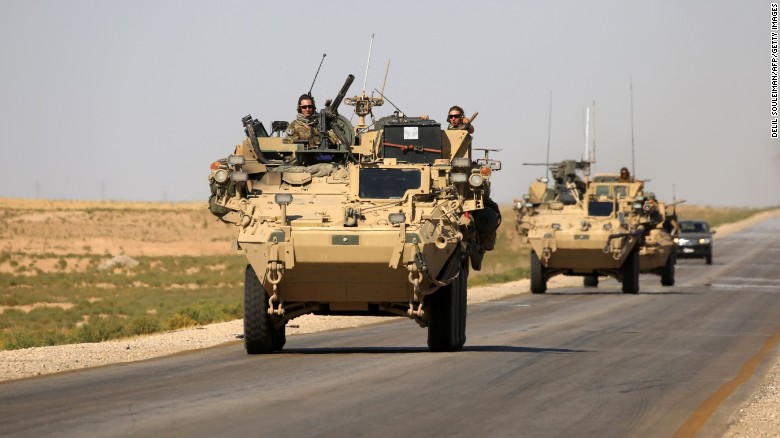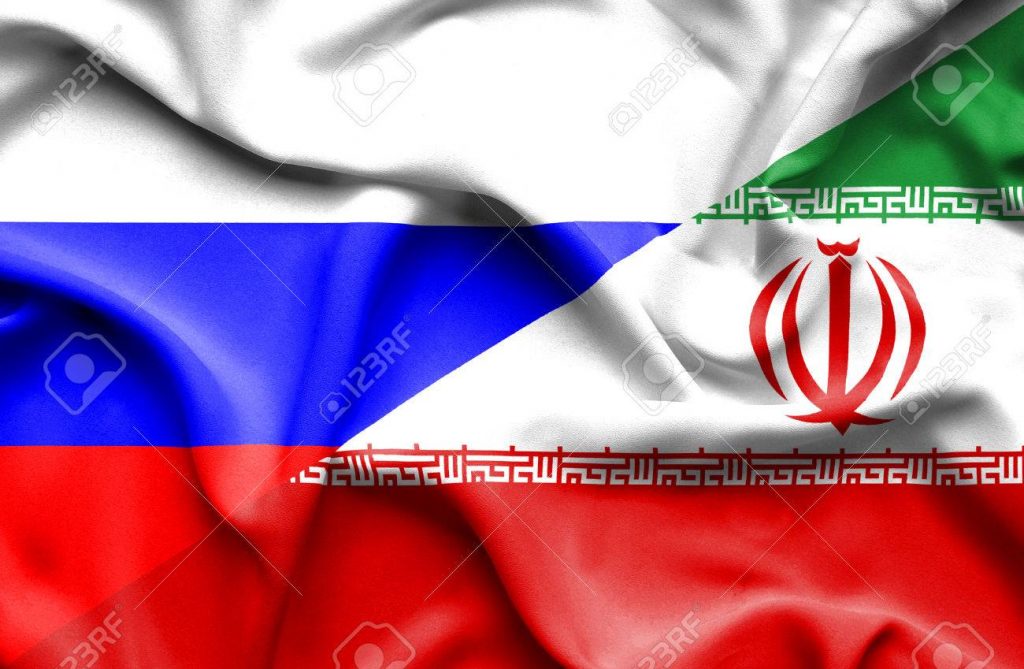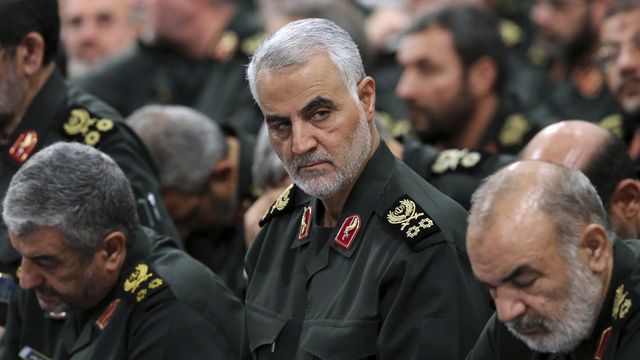Dear Friend,
The US killing of Iranian general Qassim Soleimani has further opened the door to a potential restructuring of the Gulf’s security architecture. In line with an Iranian plan launched at last year’s United Nations General Assembly by president Hassan Rouhani that calls for a security architecture that would exclude external forces, cooler heads in Tehran argue that an expulsion of all US troops from the Middle East would constitute revenge for Mr. Soleimani’s assassination.
Ali Ahmed argues, "Gujaratification, the subversion of institutions and instruments of law and order and justice, is a national security threat since there is no distinction left between state and its temporal steward. The threat is in such agencies ending up as handmaiden for the advance of the footprint of Hindutva across India. Their trampling on the political backlash in the guise of national security makes them complicit in majoritarianism, besides setting the stage for authoritarianism."
Kindly support honest journalism to survive. https://countercurrents.org/subscription/
If you think the contents of this news letter are critical for the dignified living and survival of humanity and other species on earth, please forward it to your friends and spread the word. It's time for humanity to come together as one family! You can subscribe to our news letter here http://www.countercurrents.org/news-letter/.
In Solidarity
Binu Mathew
Editor
Countercurrents.org
Soleimani’s death opens a door to alternative security arrangements in the Gulf
by Dr James M Dorsey
The US killing of Iranian general Qassim Soleimani has further opened the door to a potential restructuring of the Gulf’s security architecture. In line with an Iranian plan launched at last year’s United Nations General Assembly by president Hassan Rouhani that calls for a security
architecture that would exclude external forces, cooler heads in Tehran argue that an expulsion of all US troops from the Middle East would constitute revenge for Mr. Soleimani’s assassination.

The US killing of Iranian general Qassim Soleimani has further opened the door to a potential restructuring of the Gulf’s security architecture.
In line with an Iranian plan launched at last year’s United Nations General Assembly by president Hassan Rouhani that calls for a security architecture that would exclude external forces, cooler heads in Tehran argue that an expulsion of all US troops from the Middle East would constitute revenge for Mr. Soleimani’s assassination.
While it likely would be a drawn-out process, Iraq’s parliament took a first step by unanimously asking the government in the absence of Kurdish and Sunni Muslim deputies to expel US forces from the country.
Ultimately, Iran may at best get only part of its wants.
Iraqi prime minister Adel Abdul Mahdi has dialled back his initial support of parliament’s demand, saying that any withdrawal would involve only US combat forces and not training and logistical support for the Iraqi military.
Similarly, Gulf states like Saudi Arabia, the United Arab Emirates, Kuwait and Qatar are unlikely to expel US forces and bases.
That does not mean that the foundation for the Gulf’s security architecture, grounded in a US defense umbrella primarily to shield the region’s energy-rich monarchies from potential Iranian aggression, is not shifting.
In fact, it was already shifting prior to the killing of Mr. Soleimani.
Saudi Arabia and the UAE that long supported US President Donald J. Trump’s maximum pressure campaign against Iran, involving the US withdrawal from the 2015 international agreement that curbed Iran’s nuclear program and the imposition of harsh economic sanctions, began hedging their bets in the second half of last year.
The Gulf may have on an emotive level privately celebrated the death of Mr. Soleimani, an architect of Iran’s use of proxies across the Middle East, but in a more rational analysis fear that his killing may have opened a Pandora’s box that could lead the region to all-out war.
Saudi Arabia and the UAE called for de-escalation in the wake of the killing as Khalid bin Salman, the kingdom’s deputy defense minister and brother of crown prince Mohammed bin Salman, travelled to Washington and London to urge restraint.
Ironically, the killing of Mr. Soleimani rather than strategically pleasing Gulf leaders may have reinforced concerns that they no longer can fully rely on the United States as their sole security guarantor.
If the United States’ refusal last year to respond forcefully to a string of Iranian provocations sparked Gulf doubts, Mr. Soleimani’s killing raises the spectre of US overreach when it does.
Mr. Trump’s threat to attack Iranian cultural sites, despite animosity towards Iran and anti-Shiite sentiment in some Gulf quarters, is likely to have reinforced that concern.
The Gulf states’ hedging of their bets will not make Mr. Rouhani’s proposal any more attractive but it has already led to direct and indirect diplomacy by the UAE and Saudi Arabia to reduce tension with Iran.
Mr. Soleimani was killed on the morning that he reportedly was to deliver to Mr. Abdul Mahdi, the Iraqi prime minister, a Iranian response to a Saudi initiative to defuse tension.
While Mr. Rouhani’s proposal is a non-starter, it contains one element that could prove to have legs: some form of non-aggression agreement or understanding between the Gulf states and Iran.
The notion of an understanding on non-aggression would stroke with a Russian proposal for an alternative multilateral arrangement that calls for a regional security conference along the lines of the Organization for Security and Cooperation in Europe, the OSCE.
Unlike Mr. Rouhani’s proposition, the Russian proposal would involve multiple external powers, including Russia, China and India, but, in the knowledge that no country can as of now replace the United States militarily, be centred on US military muscle.
The proposal, endorsed by China, potentially could cater to Mr. Trump’s demand for burden-sharing and financial compensation for a continued US role in security across the globe.
Russian officials and surrogates for the Kremlin stress that the proposal seeks to capitalize on the United States’ mushrooming predicament in the Middle East but does not mean that Russia was willing to make the kind of commitment that would position it as an alternative to the US.
Similarly, the nature of China’s participation in last month’s first-ever joint Chinese-Russian-Iranian naval exercise signalled that closer Chinese military ties with a host of Middle Eastern nations did not translate into Chinese aspirations for a greater role in regional security any time soon.
China contributed elements of its anti-piracy fleet that were already in Somali waters to protect commercial vessels as well as peacekeeping and humanitarian relief personnel rather than combat troops.
As they hedge their bets, Gulf states may want to take their time in thinking about a more multilateral security arrangement that includes but goes beyond the United States.
The Gulf states’ problem is that fast-moving and to some degree unpredictable developments in the Middle East could change their calculus.
That is also true for Russia and particularly China that has long maintained that its security interests in the region, based on the ability to freeride on the US defense umbrella, were best served by mutually beneficial economic and trade relations.
Increasingly that approach could prove unsustainable.
Said Jiang Xudong, a Middle East scholar at the Shanghai Academy of Social Sciences: “Economic investment will not solve all other problems when there are religious and ethnic conflicts.”
Mr. Xudong could just as well have included power struggles and regional rivalries in his analysis.
Dr. James M. Dorsey is a senior fellow at Nanyang Technological University’s S. Rajaratnam School of International Studies, an adjunct senior research fellow at the National University of Singapore’s Middle East Institute and co-director of the University of Wuerzburg’s Institute of Fan Culture
A podcast version of this story is available on Soundcloud, Itunes, Spotify, Stitcher, TuneIn, Spreaker, Pocket Casts, Tumblr, Podbean, Audecibel, Patreon and Castbox.
On The Brink Of War?
by Dr Chandra Muzaffar
Are we on the brink of a Third World War? There are signs that demand that we ask this question. Three clusters of signs compel us to probe a question that could well determine the future of our civilisation.
Will Russia become the brother in arms with Iran?
by Punsara Amarasinghe
Russia’s next move would not definitely be a blatant military assistance to Teheran as a brother in arms. But, Russia is likely to play a key role through its diplomatic means to impede any crisis that would be detrimental to its ally Iran.

The killing of Iranian leader of famous Quds force Gen.Qasem Soleimani in Bagdad seems to have made an apocalyptic move in the beginning of this new decade as some critics have already viewed this incident similar to the the assassination of Austrian crown prince Duke Franz Ferdinand in Sarajevo which paved the path to the First World War in 1914. Perhaps, the assumption could be an exaggeration with the balance of power in the world in early 20th century and now, but certainly the aftermath consequences of death of Soleimani could escalate severe political turmoil that might lead to a grave crisis. The deteriorating relations between Iran and the US in past months have clearly suggested that the killing of Soleimani was not entirely an abrupt situation, but a culminating act of a serious of disturbing events between the two countries. The statement issued by Iranian supreme leader vowing to revenge indicates the wounded pride of a nation, yet the it is disputable whether Iran would retaliate without concerning the strength of the US war machinery that could bring catastrophic effects to the whole country. However, it is a fact beyond doubt, Iran is a regional power with a strong war machinery which has been trained for any military encounter for years and this military and technological sophistication have made Iran a unique example from any country that the US had gone to war since the end of Second World War. But, it seems to indicate that Iran is likely to choose asymmetrical escalation through using proxies or small group attack on American targets to deter Washington.
On the other hand, the main assumption that has fascinated many armchair critics is that Russia will unconditionally assist Iran in any military campaign against the USA. This argument can be bolstered by examining the political affinity between Teheran and Moscow in the recent past. In particular, when Iran was threatened by Trump in last May, it was Moscow who made an official statement in supporting Teheran and also Russia is clearly aware of the importance of keeping Iranian regime without allowing external forces to cripple it, because Iranian stability is a paramount factor of deterring the US and its involvement in the middle east. More importantly both Moscow and Tehran have strengthened their ties for common cause of protecting Assad’s regime in Syria. Furthermore, Russia’s recent involvement in global politics from its relative passivism during Yeltsin’s era have given a signal to its ultimate ambition becoming a global player. This agenda was brought by president Putin in 2007 in his Munich speech showing his antipathy over a “unipolar” world, in other words his denial of US domination in word politics. The audacious conduct of Iran and its military mechanism as a strong state is Russia’s major knight in the Middle East that Moscow does not want to lose. In fact, it was just several days before the killing of Soleimani Iranian, Russian and Chinese naval forces conducted a joint naval exercise in Gulf of Oman. Also deceased general Soleimani was regarded by Moscow as an astute strategist who played a cardinal role in making Russian military presence when Syrian army was in a decaying stage in 2015. Russia’s air strikes finally changed the game and Soleimani made one more visit to Moscow in 2017, this reportedly was to discuss Russia’s bilateral cooperation with Sunni monarchies in Persian Gulf. This background is a good evidence to suggest the dismay of Iranian general to a major blow to Moscow as a loss of a shrewd strategic thinker who could have been further used as a proxy for Russian involvement in the middle east.
However, still it is bit of a hyperbolic assumption to think that Moscow would directly lead her armies to support Iran or encouraging such a military confrontation between the US and Iran. Regardless Moscow has been vociferous in criticising the macho gesture of Trump administration for killing Soleimani, so far it has maintained its silence of what Russia will really do about it. Unconditional military pact with Tehran seems to be a fancy idea to revive old Soviet super power status as how it protected Cuba, yet the political reality piercing Moscow is something bitter. It convinces that any military confrontation Teheran world launch against the US will be devastating blow that would simply weaken the Iranian regime and this will lead to undermine Iran’s role in supporting Assad’s regime. Furthermore, the rapport built by Moscow in the Middle East with Iranian rivals such as Saudi Arabia, UAE and even Israel can be come adversaries again leading to an unmitigated disaster of Putin’s grand strategy of keeping ties with American allies in the middle east. These circumstances will create twilight scenario to assess any possible moves by Moscow. Another notable factor emerged after the death of Soleimani is the rapid increase of the oil price as the price of a barrel jumped from 2 US dollars to 69 US dollars and being one of prime oil producers this situation has created a sudden financial benefit for Russia. All in all, Russia’s next move would not definitely be a blatant military assistance to Teheran as a brother in arms. But, Russia is likely to play a key role through its diplomatic means to impede any crisis that would be detrimental to its ally Iran.
Punsara Amarasinghe is a PhD researcher at institute of law and politics, ScuolaSuperioreSant Anna in Pisa, Italy. He holds LL.M in International Law from South Asian University, New Delhi and completed one year fellowship at faculty of law, Higher School of Economics in Moscow. He can be reached at punsaraprint10@gmail.com
Gujaratification as the foremost national security threat
by Ali Ahmed
Gujaratification, the subversion of institutions and instruments of law and order and justice, is a national security threat since there is no distinction left between state and its temporal steward. The threat is in such agencies ending up as handmaiden for the advance of the footprint of Hindutva across India. Their trampling on the political backlash in the guise of national security makes them complicit in majoritarianism, besides setting the stage for authoritarianism.
What I Think The Indian Right Wing Is Planning To Do Next In 2020
by Mirza Ahmed
Based on what their loyalists on Twitter are clamouring for.
Attack On Students and Teachers: Kancha Ilaiah Shepherd Withdraws From New Indian Express Conclave
by Kancha Ilaiah Shepherd
Kancha Ilaiah Shepherd's open letter to Prabhu Chawla, Editorial Director, New Indian Express
A Repulsive Political Game Play
by Yadul Krishna
It is not the first time that JNU is witnessing the wrath of the right wing. But on what had happened recently cannot be seen as just another usual incident amongst others. Never in the history of JNU did it see such chaos reigning on the campus.
Resist!
by Kabir Deb
He’s a Hitler
with a new Bormann,
they define chaos as bravery,
nationalism is a new term for treachery,
we can’t let him swallow every thing we have,
if crushing them needs to die, I’ll be the first one!
America, Where Great Literature Kicked The Bucket
by Andre Vltchek
Once in a while, people ask me: “Why did you accept the US citizenship, many years ago?” “After all,” they say, “now you are one of the most vocal critics of the United States, and of the West in general.” Perhaps I never explained, or I did, some time ago, and now it is forgotten. So, let me try again, now that the world is facing destruction, and an un-pronounced but real “new cold war” is ruining millions of lives.
Majoritarian Defenders of minority rights in South Asia
by Shahul Hameed Mattumannil
Countries in the region seem to have found new interest in the minority questions of neighbours; and the issue has got new dimension. Nowadays, the heads of the two largest countries in the subcontinent spend a large chunk of their energy for defending the minorities of neighbouring
countries.

No comments:
Post a Comment